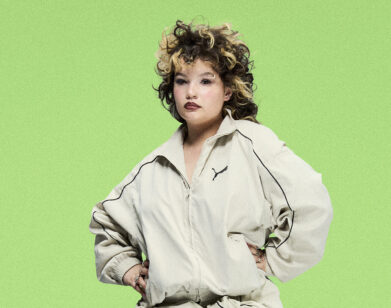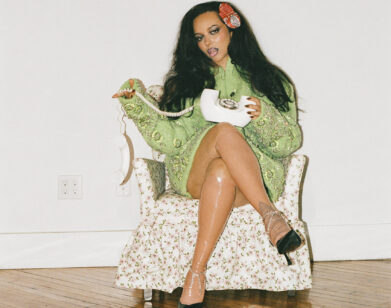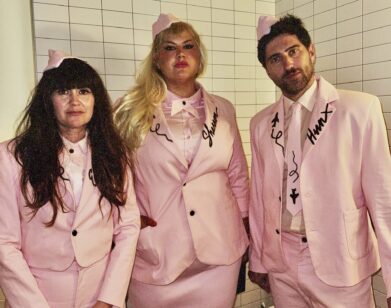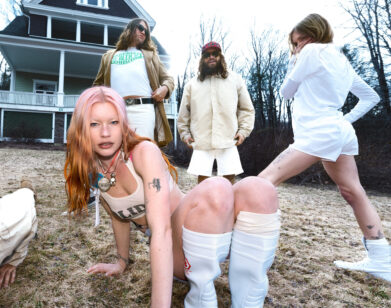Inside the Dome with Sarah Neufeld
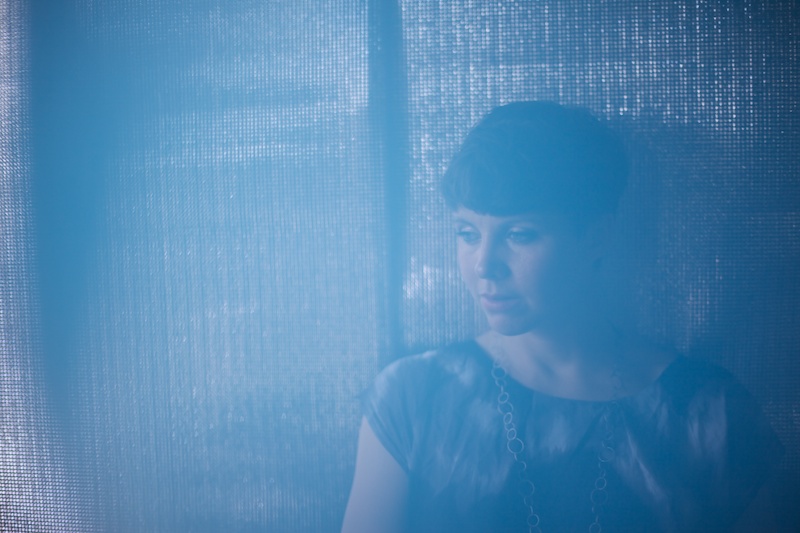
ABOVE: SARAH NEUFELD. IMAGE COURTESY OF SAMANTHA CASOLARI
Sarah Neufeld seems to gather critical acclaim at every turn. One part of Grammy Award-winning outfit Arcade Fire and Juno Award-winning ensemble Bell Orchestre, Neufeld has now turned her hand to solo pursuits. Hero Brother is a dynamic release that is as rich and atmospheric as it is resilient and bristling with wild energy. It’s both technically adroit and emotionally poignant, commanding listener engagement.
We spoke to Neufeld from her woodland getaway to learn a little more about the album that’s taken her across Berlin—from Eastern Bloc hideouts to concrete domes in the sky—all in the pursuit of her unique sound.
DOMINIC MAXWELL-LEWIS: So you’ve just had an electrical storm?
SARAH NEUFELD: Yeah, there was. I hadn’t arrived yet but we have this little cabin in Green Mountains in Vermont, where I am now. Friends of ours were staying last night and all of a sudden there was a flash of light and this really weird vibration and their computers were fried.
MAXWELL-LEWIS: That’s so dramatic. But the Green Mountains sound wonderful.
NEUFELD: They are. We just got this place last fall, and it’s so beautiful out here.
MAXWELL-LEWIS: What a great spot to be in. The first thing I wanted to ask you was actually to do with environments. I was struck by how incredibly rich the textural sounds on the tracks are and I know you recorded in a few different spaces, can you tell me about them?
NEUFELD: Nils [producer Nils Frahm] and I went to a few different places in Berlin after we recorded the bulk of the record in Studio P4, which is also a very special place—it was a recording compound that the GDR [German Democratic Republic] was housed in for many years. So after we had recorded the main body of the pieces there, we went to this concrete geodesic dome called Teufelsberg, which we weren’t supposed to be in at all. [laughs] I was wondering if I was supposed to talk about it but here we go. This one was a dome built by the CIA back in the day to spy on the East. Teufelsberg is also really, really high up. You have to climb up these really sketchy, glass-filled concrete stairs to get into it.
MAXWELL-LEWIS: Could you quickly elaborate on what a geodesic dome is?
NEUFELD: Sure. I’m not exactly sure why they were built, but there’s many of them. It’s a structure designed by Buckminster Fuller. It’s a dome, like a soccer ball, with all these many angled faces on it. There’s no light in it, and a lot of the texture on the record is the wind, which comes through missing panels. You get something like 15- or 18-second reverb, and it just keeps shifting and changing so we initially just recorded that on a little Nagra four-track tape recorder that the journalists used to use in the ’60s. I was so struck by how everything sounded in there and so overwhelmed that to begin with I could hardly even play a note.
MAXWELL-LEWIS: On the record, it felt like the sounds of the sea.
NEUFELD: Yeah, the sea that you’re hearing was the wind in the dome. It sounds oceanic because it shifts all the time. It’ll cut out and come back in again with a roar as the wind changes.
MAXWELL-LEWIS: It was really affecting.
NEUFELD: We wove it through the sound, like a noise floor. You can’t play too many notes in a space like that because they just get lost. We also used a train station and an underground parking garage, which both have really nice acoustic properties. But the dome was by far the most extreme example of that.
MAXWELL-LEWIS: You cite composers like Béla Bartók and Arthur Russell as influences. When you’re looking to create an avant-garde sound, do you perceive any limitations to classical training?
NEUFELD: I don’t think of it like that, because I have such a wide range of training and experience that I never really stuck to one genre or the other. My early years taking lessons in classical violin, I was always improvising with family and friends and also studying different kinds of music, so I never adhered to just one kind of training, and I never subscribed to a particular compositional style, either. It’s always been an incredibly mixed bag. I think you need to live with a lot of styles of music if you want to find your own way. The reason that my approach to music completely disregards genre boundaries is because I was never interested in being rooted in just one of them.
MAXWELL-LEWIS: It appears to be a very personal record. What was it that made you decide to break off from ensemble work and write it?
NEUFELD: Well, that’s it. I’ve done so much ensemble work that I wanted to explore the craft of writing alone. I hadn’t explored this kind of violin music that I’d been playing around with for so many years. In Bell Orchestre, I developed this really rhythmic style of playing. It was as if I was inhabiting a guitar role. So naturally I was feeling inclined to work on some of these ideas by myself.
MAXWELL-LEWIS: When I’ve seen you play with Arcade Fire, everyone looks like they’re having such an incredible time. How does it compare with solo performance?
NEUFELD: In Arcade Fire there’s such a huge energy that we all just slip into this other way of being that’s channeling the music. That’s very much present in solo performance, too, but I’d say it’s intensified because there’s such a magnifying glass on it when you’re by yourself. The kind of focus I have is different because I’m so much more aware of the minutiae of my own playing. Because it’s more technical, I tend not to get as lost in the jumping up and down and the foot-stomping and the shouting, but it’s the same world.
MAXWELL-LEWIS: But you also do some of that on Hero Brother.
NEUFELD: I do. But this is with a hyper-acute state of focus, and I’m watching every millisecond.
MAXWELL-LEWIS: As the record progressed, I became aware of a duality occurring. There’s a shift of focus from the earlier tracks like “Dirt” to the later ones like “Sprinter Fire.”
NEUFELD: I would group them a bit differently, but whether you define them by their atmosphere properties or their narrative feeling is up to the listener.
MAXWELL-LEWIS: I wanted to talk a bit about your business, Moksha Yoga NYC. How did you become involved in that?
NEUFELD: I started practicing yoga more and more over the years of touring a lot. I’d always done a bit of yoga here and there at university and so on, but I got more into it as a life balance and then I gravitated more towards this studio in Montreal called Moksha. I actually knew one of the co-founders, and it organically spread as more of a community movement. And there’s a wonderful platform for environmental action and social awareness. Eventually myself and a friend of mine started dreaming of opening a location in New York.
MAXWELL-LEWIS: Do you apply the same discipline as with yoga to your music?
NEUFELD: That’s exactly how I always answer the question. For me, they are two sides of the same coin. Of maintaining a consistent effort in life in order to do the things that you want to do—yoga, meditation, playing your instrument—and allowing them to coexist and be strong and grow.
HERO BROTHER IS OUT AUGUST 20 ON CONSTELLATION. SARAH NEUFELD WILL PLAY THE ROCKWOOD MUSIC HALL ON AUGUST 28. FOR MORE ON THE ARTIST, PLEASE VISIT HER WEBSITE.

